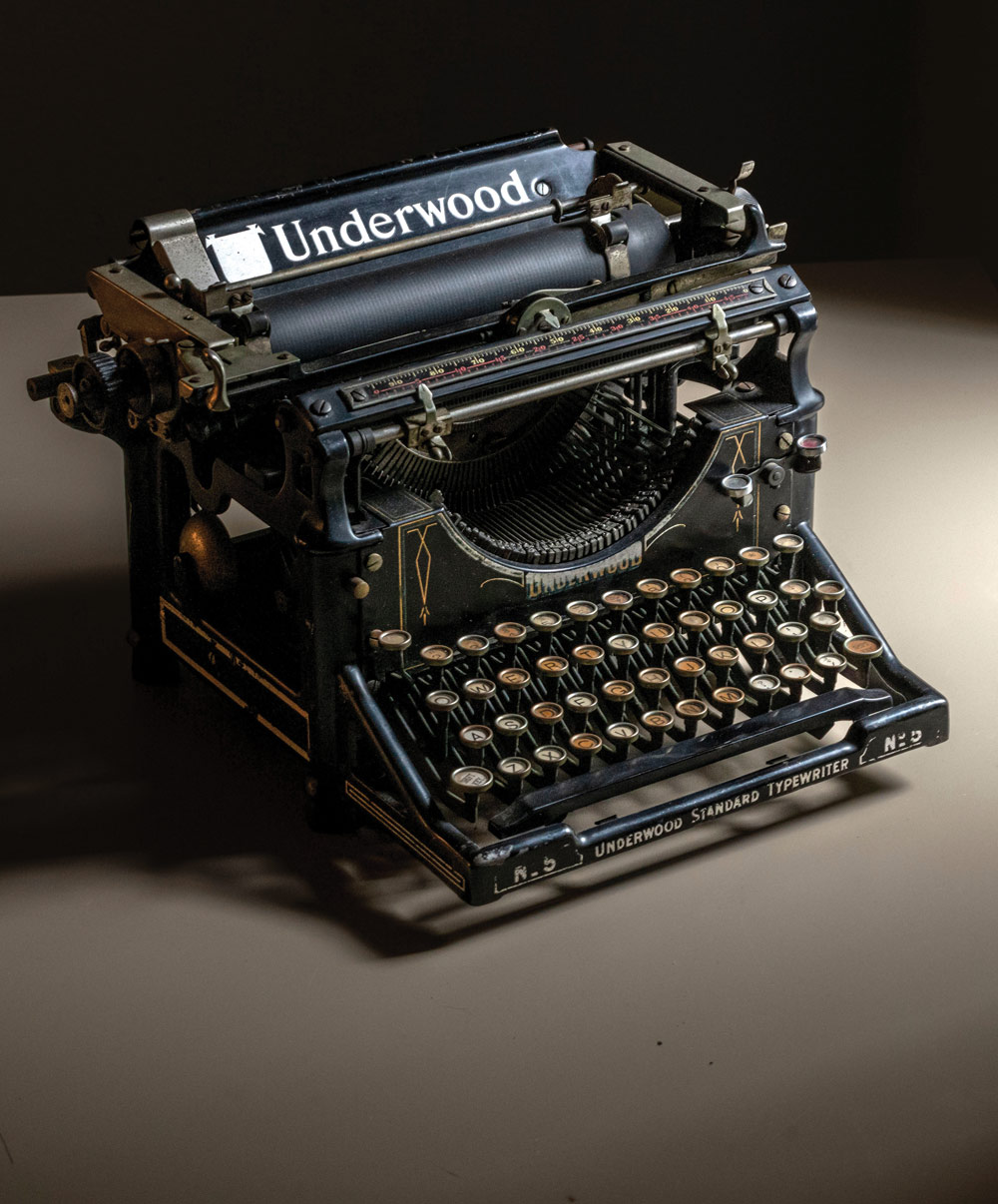looking back

The poet’s presence — in the pages of The Phoenix, in the Libraries’ Special Collections, as an occasional lecturer and esteemed visitor — lasted for decades. Auden joined the Swarthmore faculty as a lecturer in English, not as a creative writing instructor, and he rarely read his own poetry while in residence. He tended to break one of the cardinal laws of library usage while he was at Swarthmore: He wrote in library books. But the Libraries were fortunate that Auden usually wrote in his own books, like the copy of On This Island that he consulted while compiling a collection of his poetry.
He amusingly wrote to Ursula Niebuhr, “My seminar on Romanticism starts tomorrow. Quakers or no Quakers, I shall serve bread and cheese and beer at four o’clock.”
In 1966, Auden sent a letter to James Govan, the College librarian, stating, “I happened to see in the Swarthmore Bulletin that you are looking for manuscripts of mine. The other day, I turned up the enclosed to which you are welcome if you want it.” The item was a manuscript notebook from 1932 to 1935, which the Libraries had conserved in 2018.
Auden’s affiliation with Swarthmore continued beyond his years of teaching. He returned to campus in 1950 to deliver a lecture on “Nature, History and Poetry,” and again in 1964 to receive an honorary degree.
His final visit to the campus was in 1971, when he gave a lecture and poetry reading and joined visiting professor Brendan Kennelly’s class for a candid, informal discussion of his poetry and opinions.
— AMY M. McCOLL, Associate Director, Collections Management & Discovery